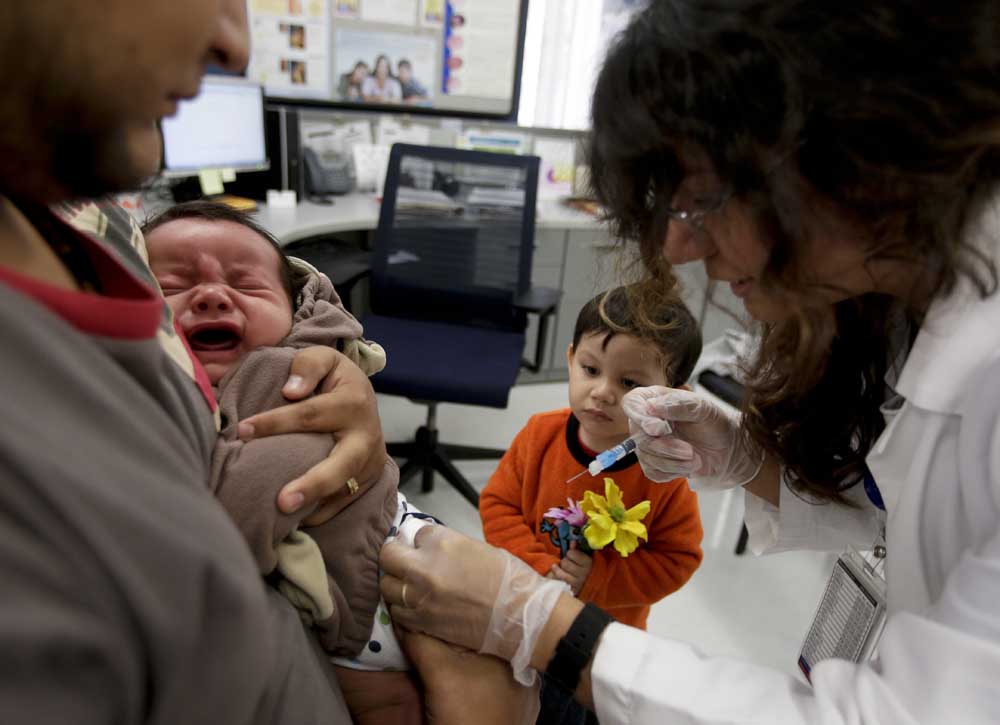Oregon whooping cough cases trend toward record, prompting calls for vaccinations
Published 7:25 pm Thursday, November 14, 2024

- In this December 2014 photo, a registered nurse at the San Diego Public Health Center gives an infant a whooping cough injection while his father holds him and his 2-year-old brother looks on.
The number of pertussis, or whooping cough, cases in Oregon is on track to hit an all-time high by the end of the year, state officials said Thursday.
The spike comes as vaccinations have dipped, falling off after the COVID-19 pandemic, the health officials say.
Trending
As of Wednesday, the Oregon Health Authority has confirmed 827 cases in 23 counties so far this year. Only 32 cases were reported over the same period last year. Health officials said the state is on track to break its one-year record of 910 cases, set back in 2012. Oregon began tracking cases in 1953.
Lane County has seen the largest outbreak with 249 cases, followed by Multnomah with 180, Clackamas with 109 and Washington with 67, according to the state. The median age of people affected is 11. At least one adult has died from complications.
Whooping cough cases declined soon after the start of the pandemic, as people wore masks and practiced social distancing, according to state health officials. Annual case counts in Oregon typically reached triple digits before the pandemic, but dropped to just three cases in 2021, the state said.
State health officials attribute the surge in cases to a decline in vaccination rates. According to state immunization data, 90.4% of kindergarteners were vaccinated against whooping cough this year — down from 92.4% in 2019.
The state said nearly half — or 409 —of this year’s cases were among people who had never received a dose of whooping cough vaccine. And less than half of the cases — or 361 — were among those who were up to date on vaccines.
Pertussis, commonly known as whooping cough because of the sound patients make when they cough, affects people of all ages. The infection leads to swelling in the airways.
Trending
Since infants have much smaller air passages, their risk for severe illness is greater, according to the state.
“Pertussis is very contagious, and that’s one of the reasons it’s so hard to control,” Dr. Lisandra Guzman, Lane County’s deputy public health officer, said in a news release. She said early symptoms of whooping cough can be confused with the common cold and other respiratory viral infections, which means cases often don’t get caught until they’re severe.
Since babies can’t be vaccinated until they reach 2 months, protection in the first months of life comes from antibodies inherited in the womb. To help protect babies, state health officials are urging pregnant people to get the whooping cough vaccine known as Tdap — which also helps prevent tetanus and diphtheria — between the 27th and 36th week of pregnancy.
The Centers for Disease Control and Prevention recommends infants get vaccinated 2 months, 4 months and six months. Children are advised to get a booster at 15 to 18 months of age, another before entering kindergarten, and another between the ages of 12 and 14.








